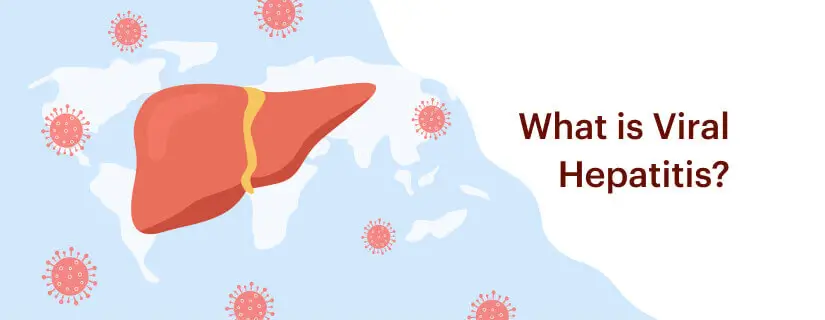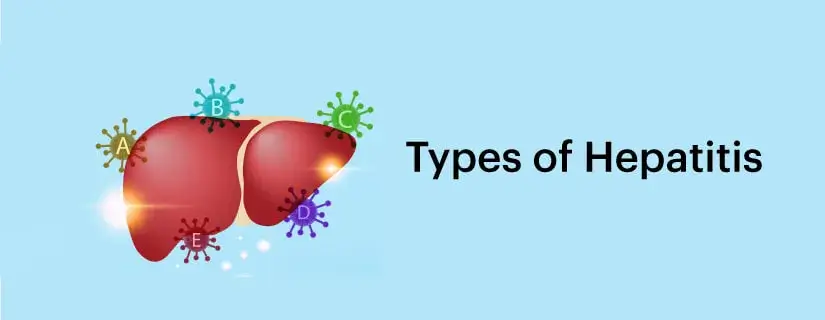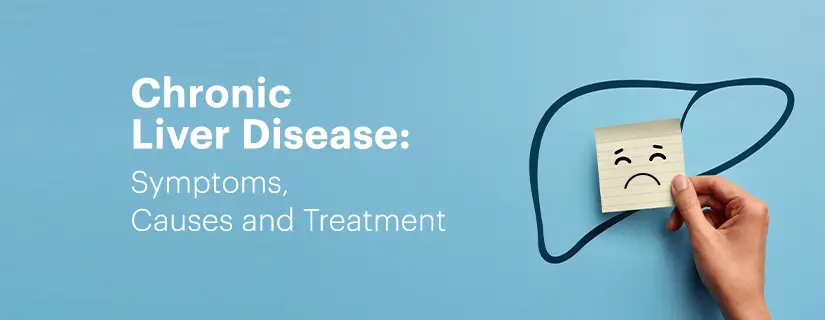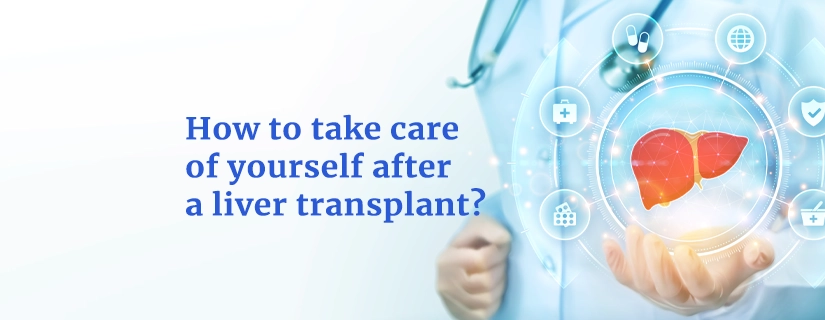-
Doctors
-
Specialities & Treatments
Centre of Excellence
Specialties
Treatments and Procedures
Hospitals & Directions HyderabadCARE Hospitals, Banjara Hills CARE Outpatient Centre, Banjara Hills CARE Hospitals, HITEC City CARE Hospitals, Nampally Gurunanak CARE Hospitals, Musheerabad CARE Hospitals Outpatient Centre, HITEC City CARE Hospitals, Malakpet
HyderabadCARE Hospitals, Banjara Hills CARE Outpatient Centre, Banjara Hills CARE Hospitals, HITEC City CARE Hospitals, Nampally Gurunanak CARE Hospitals, Musheerabad CARE Hospitals Outpatient Centre, HITEC City CARE Hospitals, Malakpet Raipur
Raipur
 Bhubaneswar
Bhubaneswar Visakhapatnam
Visakhapatnam
 Nagpur
Nagpur
 Indore
Indore
 Chh. Sambhajinagar
Chh. SambhajinagarClinics & Medical Centers
Book an AppointmentContact Us
Online Lab Reports
Book an Appointment
Consult Super-Specialist Doctors at CARE Hospitals
Viral Hepatitis: Types, Symptoms and Prevention
Updated on 15 July 2022

Table of Content
The liver is the major solid organ of the human body. It performs a myriad of life-sustaining functions. Hepatitis is an inflammation of the liver which occurs secondary to any injury. The injured liver cells (hepatocytes) produce an inflammatory condition which causes derangement in the functions of the liver. Viral infections (Hepatitis A, B, C, D & E) are the most common causes of hepatitis in India. Hepatitis can also be caused by autoimmune conditions, excessive intake of alcohol, certain drugs, medications and toxins.
Types of Viral Hepatitis
Here are some types of viral hepatitis:
Hepatitis A & E (HAV & HEV):
We acquire these infections via feco-oral transmission. Infection happens when a healthy person consumes drinks or foods contaminated with the virus. The virus reaches these sources when an infected person handles the food or water with dirty hands. Improper washing of fruits and vegetables, drinking dirty water and handling food with hands contaminated with fecal matter are the common causes of Hepatitis A and E infection.
Hepatitis B, C & D (HBV, HCV & HDV):
Transmission of these viruses occurs when we are exposed to the body fluids of an infected person. The common fluids are blood or blood products, vaginal secretions and semen. Blood transfusions with unscreened infected blood used to be a common cause of disease transmission. Sharing needles for body piercing, tattooing and IV drug use is also a common cause of transmission of these viruses. The use of common blades for shaving is common in certain rural areas. Unprotected and unsafe methods of sexual contact are also a common mode of disease transmission.
Symptoms
Most patients with hepatitis have only mild symptoms. In many cases, the patients may mistake the symptoms for minor flu or GI upset. Though in most cases the hepatitis symptoms will include the following:
-
Feeling unusual exhaustion at a very high rate 24/7
-
Joint and muscle pain
-
Being and feeling sick
-
Appetite loss
-
High body temperature
-
Dark coloured urine
-
Feeling unwell generally, not understanding what’s wrong with the body
-
Skin feels itchy all the time
-
Yellowing of the skin and eyes (Jaundice)
-
Pain in the tummy
-
Poo is pale-coloured or even grey
Most of these symptoms usually resolve with rest, good food and hydration. Consult your doctor if your notice the symptoms getting worse.
Hepatitis is considered acute if the disease lasts for less than 6 months and chronic if lasting for more than 6 months. Hepatitis A and E usually cause acute hepatitis which resolves in more than 90% of cases. Rarely can acute hepatitis may worsen leading to liver failure called Acute liver failure. This condition requires the patient to be managed in a hospital with medications. Rarely an Acute liver failure may not respond to medications and a Liver transplant may be required.
Chronic hepatitis may not show obvious symptoms until it's too late. Prolonged injury to the liver can cause chronic liver disease and cirrhosis of the liver. Blood tests guide us in evaluating the cause of disease and help us in monitoring the treatment. Hepatitis B and C cause chronic hepatitis if left untreated.
Prevention and Cure of Hepatitis
The disease is preventable, and most affected people recover from it. Though, it is still considered to be a serious health risk because of the following reasons:
-
It can spread very easily from one person to another.
-
It causes liver cell injury
-
It destroys liver tissues
-
It weakens and destroys the infected person’s immune system
-
It can cause liver cancer
-
It causes death in a few cases
These are the methods which can help you with the prevention of hepatitis:
-
Maintain good personal hygiene. Use good soaps and wash your hands regularly while handling food.
-
Avoid drinking water from contaminated sources
-
Get the vaccines available for Hepatitis A and B
-
Take precautions when getting tattooed or getting piercings
-
Follow safe and protected sexual practices
Hepatitis can be contracted due to a variety of reasons. It helps to be aware of the possible causes and avoid them as far as possible. Though it may sound cliche, prevention is always better than cure as it spares you the agony of dealing with the disease and its symptoms. Make sure to maintain personal hygiene and take necessary precautions. Although vaccines are only available for Hepatitis A and B viruses, it is best to get yourself vaccinated. Oral medications are available for Hepatitis B and C virus infections. The efficacy of these anti-viral medications is more than 90%. Being compliant with the medications can prevent any long-term liver injury from these viruses.
With appropriate and correct hepatitis treatment in Hyderabad, most hepatitis will resolve and major complications can be avoided. Follow the advice of your hepatitis specialist doctor and be under regular follow-up if required. Being careful will always help in the long run where health is concerned.

ENQUIRY FORM
SELECT CATEGORIES
-
Neurosciences (16)
-
Neurology (37)
-
Neurosurgery (14)
-
Orthopaedics (48)
-
Oncology (33)
-
Obstetrics and gynecology (52)
-
Pulmonology (23)
-
Urology (20)
-
Nephrology (13)
-
Psychiatry (7)
-
Dietetics and Nutrition (111)
-
General Medicine (63)
-
Cardiac Sciences (32)
-
Vascular & Endovascular Surgery and Interventional Radiology (15)
-
Gastroenterology (46)
-
Endocrinology (23)
-
Plastic Surgery (10)
-
Critical Care Medicine (5)
-
COVID-19 (16)
-
Dermatology (16)
-
Emergency Care (1)
-
Ophthalmology (4)
-
Pediatrics (14)
-
Laparoscopic and Bariatric Surgery (8)
-
ENT (15)
-
Kidney Transplant (1)
-
Liver Transplantation and Hepatobiliary Surgery (5)
-
General Surgery (3)
-
Internal Medicine (5)
-
Medicine Information
Top 5 Liver Diseases and Their Causes
YOU MAY ALSO LIKE
RECENT BLOGS
-

Preterm Birth (Premature Birth): Symptoms, Causes, Treatment and Prevention
13 May 2025
Read More
-

Rotablation Angioplasty: Benefits, Treatments, And Recovery Time
9 May 2025
Read More
-

What Is The Difference Between IUI and IVF?
9 May 2025
Read More
-

Venous Malformations: Causes, Symptoms, and Treatment
30 April 2025
Read More
-

Varicose Vein Foam Sclerotherapy: Treatment, Benefits, and Procedure
30 April 2025
Read More
-

Radiofrequency (RF) Ablation Treatment for Varicose Veins: Know More
30 April 2025
Read More
-

Varicose Vein Sclerotherapy: Treatment, Benefits, and Procedure
30 April 2025
Read More
-

Varicose Vein Endovenous Laser Ablation: Procedure, Benefits, Risks
30 April 2025
Read More
Have a Question?
If you cannot find answers to your queries, please fill out the enquiry form or call the number below. We will contact you shortly.




